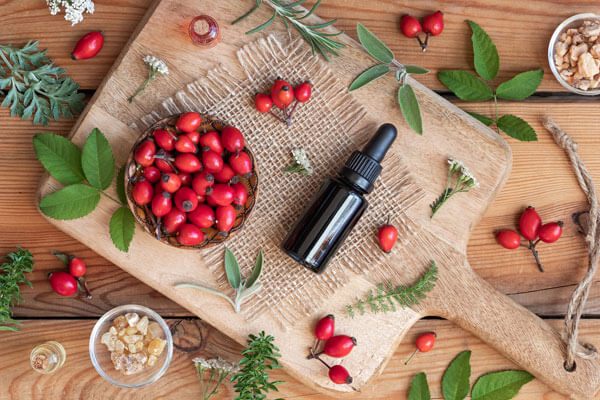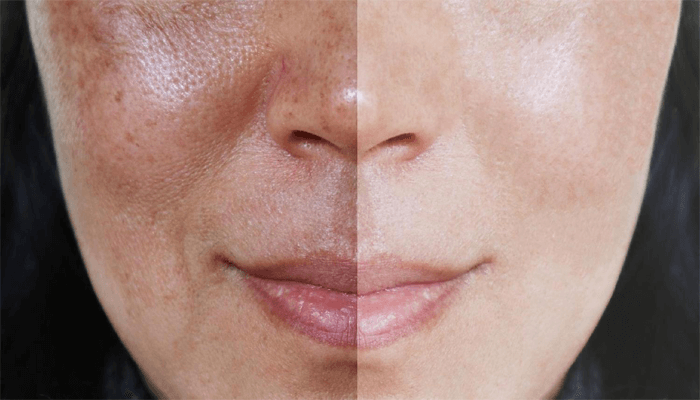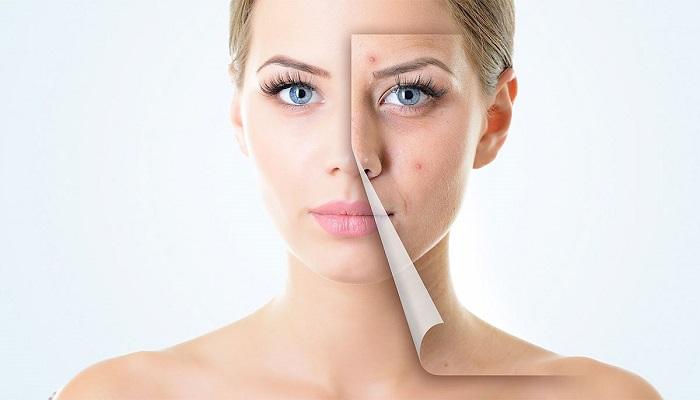Rosehip oil has gained popularity in recent years for its numerous benefits. Made from the seeds of wild rose bushes, this natural oil is rich in vitamins, antioxidants, and fatty acids, making it a powerful addition to any skincare routine. Whether you’re dealing with dryness, aging, acne, or scarring, incorporating rosehip oil into your daily regimen can help improve the overall health and appearance of your skin.
The Benefits of Rosehip Oil in a Skincare Routine
Rosehip oil, derived from the wild rose bush Rosa moschata or Rosa rubiginosa, has gained immense popularity in the beauty industry due to its numerous benefits for the skin.

Packed with essential nutrients and antioxidants, this natural oil has become a staple in your daily routine worldwide.
From tackling signs of aging to soothing inflammation, here are the top benefits of incorporating rosehip oil into your daily skincare regimen.
Anti-Aging Properties:
Rosehip oil is rich in vitamins A and C, as well as antioxidants, which help stimulate collagen production and promote cell regeneration.

This, in turn, reduces the appearance of fine lines, wrinkles, and age spots, resulting in a more youthful complexion.
Regular use of rosehip oil can also improve skin elasticity and firmness, giving your skin a smoother and plumper appearance.
Moisturizing and Hydrating:
With its high levels of essential fatty acids, rosehip oil is an excellent moisturizer for the skin. It penetrates deep into the skin layers, locking in moisture and preventing water loss, leading to a hydrated and nourished complexion.

Additionally, the oil’s emollient properties help soothe dry and flaky skin, providing relief from conditions such as eczema and dermatitis.
Brightening and Evening Out Skin Tone:
Uneven skin tone, including hyperpigmentation and dark spots, can be effectively addressed with the use of rosehip oil.
The oil contains natural compounds like lycopene and beta-carotene, which help reduce the appearance of dark spots and even out skin tone. Regular application of rosehip oil can result in a brighter, more radiant complexion, giving you a youthful glow.
Acne Treatment:

Despite being an oil, rosehip oil is non-comedogenic, meaning it does not clog pores. This makes it suitable for acne-prone skin.
The oil’s anti-inflammatory properties help calm redness and irritation associated with acne, while its antimicrobial properties assist in fighting acne-causing bacteria.
Additionally, rosehip oil helps regulate sebum production, preventing excess oiliness and reducing the occurrence of breakouts.
Scar Healing:

Rosehip oil has been found to be highly effective in fading scars and improving their appearance. The oil’s high concentration of vitamin A promotes skin regeneration, helping to diminish the visibility of scars, including surgical scars, acne scars, and stretch marks. Regular application of rosehip oil can result in smoother, more even-toned skin, giving you renewed confidence.
Incorporating rosehip oil into your daily routine can provide a multitude of benefits for your skin. From its nourishing and moisturizing properties to its ability to address signs of aging and acne, this natural oil is a true skincare powerhouse. Discover the wonders of rosehip oil and unlock your skin’s potential for a healthier, more radiant complexion.
Incorporating Rosehip Oil into Your Skincare Routine
Now that you understand the benefits of rosehip oil let’s dive into how to effectively incorporate it into your beauty products. First, it’s crucial to choose a high-quality, cold-pressed rosehip oil to ensure maximum potency and effectiveness. Look for organic options without added fragrances or preservatives for the best results.

To use rosehip oil, start by cleansing your face with a gentle cleanser suited to your skin type. Once your skin is clean and dry, apply a few drops of rosehip oil to your fingertips and gently massage it into your face and neck using upward strokes. Be sure to avoid the delicate eye area.
Rosehip oil can be used both morning and night, but if you’re new to incorporating oils into your routine, start by using it once a day and gradually increase the frequency as your skin adjusts. You can also mix a few drops of rosehip oil with your favorite moisturizer or serum for added hydration and benefits.
How Long Does it Take to See Results When Using Rosehip Oil?
Rosehip oil is a natural skin product ingredient that has gained popularity in recent years for its numerous benefits. Derived from the seeds of the rosehip fruit, this oil is rich in essential fatty acids, antioxidants, and vitamins. It’s known for its ability to hydrate the skin, reduce inflammation, and improve the overall appearance of the complexion.
If you’re considering incorporating rosehip oil into your skincare routine, you may be wondering how long it takes to see results. While individual experiences may vary, here, we’ll discuss the factors that can influence the timeline for seeing results when using rosehip oil.
Factors Affecting Results
Several factors can influence how quickly you’ll see results when using rosehip oil. These include:

Consistency:
Like any beauty product, consistent use is crucial in achieving noticeable results. For best results, it’s recommended to incorporate rosehip oil into your routine. Consistently applying the oil morning and night can help maximize its benefits and yield faster results.
Skin Type:
The timeline for seeing results can vary depending on your skin type. People with dry or mature skin may notice improvements sooner, as rosehip oil is deeply moisturizing and helps restore the skin’s barrier function. Those with oily or acne-prone skin may take longer to see results, as the oil can take time to balance sebum production and reduce breakouts.
Severity of Concerns:
The severity of your skin concerns can also impact how long it takes to see results. If you’re using rosehip oil to fade acne scars or reduce the appearance of fine lines and wrinkles, it may take several weeks or even months to notice significant improvements. Patience and continued use are vital in achieving desired results.
Conclusion
Rosehip oil is a versatile and beneficial addition to any type of skin. With its ability to improve skin texture, fade scars and hyperpigmentation, hydrate and nourish, and reduce redness and irritation, it’s no wonder that it has become a staple in many beauty enthusiasts’ collections. So why give it a try and experience the transformative power of rosehip oil for yourself? Your skin will thank you!





